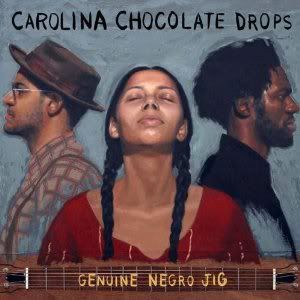Delving into the classical core of learning
New diploma program for home-schoolers builds to the study of college-level Latin and Greek
by Daina Savage - Lancaster Sunday Screws
Of course, studying the classics does not mean you will learn how to think properly, but it sure beats earth sciences, "women's studies", and bully management.
Don't tell Sawyer Neale that Latin is a dead language.
The 14-year-old home-schooled scholar from Elizabethtown is an enthusiastic reader of ancient texts, eager to point out how useful, and alive, they are in everyday life.
"Even in this conversation we're having now, most of the words we're using come from the Greek and Latin," he said.
In an animated classroom at the Lancaster Center for Classical Studies, 910 Marietta Ave., between declining Latin nouns and reciting the Greek alphabet, Sawyer and his peers extolled the virtues of delving into the study of classical languages.
These home-schoolers are part of a rigorous new diploma program at the center, which culminates in college-level coursework in Latin and Greek.
"Besides the fact that they help you with learning any other languages, including English, they are especially helpful with problem solving," said 16-year-old Rowan Byrne, of Lancaster. "And reading about the history of Rome, their customs and politics, you can compare it to current events and see that often they made more sense."
Sawyer and Rowan? Really, people? Really?"They make learning everything a lot easier," agreed Laura Cray, of Mount Joy, who is now in her sixth year of study at the center and eager to apply her skills to deciphering and mastering Arabic and Mandarin.
For centuries in Europe, and in colonial America, the mark of a well-educated person was a deep knowledge of the classical languages and texts.
Just colonial America? Methinks La Savage needed to do some research before writing that sentence.That has fallen by the wayside, as many schools today may feel more pressure to prepare students to ace the SAT than to lay the foundation of a true liberal arts education.
Heck, most schools have given up on reading and writing.Center founders Peter and Laurie Brown are combating this superficiality with a new diploma program aimed at re-establishing substantive study of the classics to the heart of a curriculum in order to develop critical thinking and foster a love of lifelong learning.
"We don't want Greek and Latin studies to be looked at as a foreign language or an enrichment on the side," Peter Brown said. "We see it as the vibrant core of a whole educational program: central and rich and limitless in possibilities."
"There's no question that the study of Latin and Greek supports every other area of study," Laurie Brown added. "It's almost impossible to understand English literature without understanding its origins, or to understand the New Testament without reading it in its original Greek, and then reading it again in Latin and observing the difficulties of translating it. This education builds a complexity of thought that you can't achieve otherwise."
The Browns said they believe the study of Greek and Latin serves to cultivate a student's powers of observation, analysis, reasoning and method.
"The most original and decisive works in the broad fields of history, literature, mathematics, science and religion are products of the Greek and Latin languages," Peter Brown said.
Exactly.
The Browns have developed a demanding, progressive course of study embraced by parents as it inspires their children.
"I enrolled my kids at first because I thought Latin would open doors for them and help train them for the SATs, but soon I realized it will help them with their whole lives," said Nikki Byrne, of Lancaster, whose home-schooled children, Rowan and Declan, have taken classes at the school for years.
"Studying Latin and Greek is so rich in how they make you think and conceptualize," said Claudia Helman, of West Hempfield Township, whose sons Christopher, 14, and Benjamin, 9, are enrolled at the center.
Although preparatory studies in grammar can begin as soon as a child can read well, usually by the fourth grade, the program begins in earnest at the start of seventh grade with a curriculum translating Vergil
[Acceptable, but uncommon in American English. Hmmm... - F.G.] and Sophocles, Homer and Plato. Throughout their studies, students re-enact scenes from "The Illiad" in dramatic readings, debate the politics of Cicero, reflect on the histories of Plutarch, and compare and contrast biblical translations.
The Browns developed the state-sanctioned diploma program in part as a service to home-school families intent on demonstrating their rigorous studies to prospective colleges.
"Our students have typically been accepted at the college of their choice, where they often find themselves better prepared than their classmates," said Peter Brown, who after earning his doctorate in Greek and Latin was a postdoctoral research fellow at the Catholic University of Louvain, Belgium. Laurie Brown's doctoral work was also in Latin and Greek, and she did research as a Fulbright fellow.
Both have taught at the college level and at lower levels for years before founding the center in 2000. They were home-schooling their own children when other home-schooling parents asked them to teach theirs as well.
Approved by the Pennsylvania Department of Education as a home education association with the ability to issue a state-recognized diploma, the center requires its graduates to, at minimum, complete the full Latin curriculum of seven courses, in addition to the state's graduation requirements.
A typical Latin or Greek course meets for an hour, twice a week, for 30 weeks. Students are expected to devote three hours of work at home for each hour of class time. Students who begin Latin in fifth grade are typically ready to begin reading Vergil or Caesar by the beginning of eighth grade. Upper level courses in Latin and Greek are college-level.
Students enrolled in the diploma program are charged tuition for the core curriculum Latin and Greek classes, as well as for various optional supplementary courses.
Complementary curricula in classical literature, writing, speaking, history, geography, mathematics and natural science are developed in close relation to the core curriculum. Further instruction in these topics may be provided by parents or other sources.
"We see this diploma program as the culmination of what we've been doing all these years, brought together in a final meaningful way before our daughter goes on," said Jane Cray, whose daughter, Laura, has been a student at the center for six years.
"Her classes here have become the bedrock of our home-schooling curriculum. Somehow its fingers reached into all educational areas — history and mathematics — not just language. The discipline that you learn is applied to everything that you are studying."
Katcha Neale, of Elizabethtown, whose sons, Sawyer and Saben, are in their fourth year at the center, says the new diploma program is a way to integrate all of their coursework, "plus it puts a light on Latin and Greek that they deserve."
Rather than thinking of these languages as dusty and ancient, Neale said they serve to illuminate vitally and vibrantly all areas of study.
It's exactly the idea the Browns wish to impart. Their mission statement says that a "classical education has nothing to do with the idea of 'antiquity' " but rather "it is concerned with eternity … [preparing students] for every eventuality."
Amen to that.Neale said she believes her sons are discovering just that. "This program speaks to what I think education is all about," she said. "This discipline hasn't crushed their love of learning, but instead served to enhance their thinking and understanding."
• For more information about the Lancaster Center for Classical Studies, contact Peter and Laurie Brown at 397-3223 or
lccs.org@verizon.net.
The writer's daughter has taken after-school Latin classes at the center.
Note that disclaimer.The bottom line remains the same, kiddies: Get your young 'uns out of the Government Indoctrination Centers before they start writing love poems to the Great High-Yellow Father.




